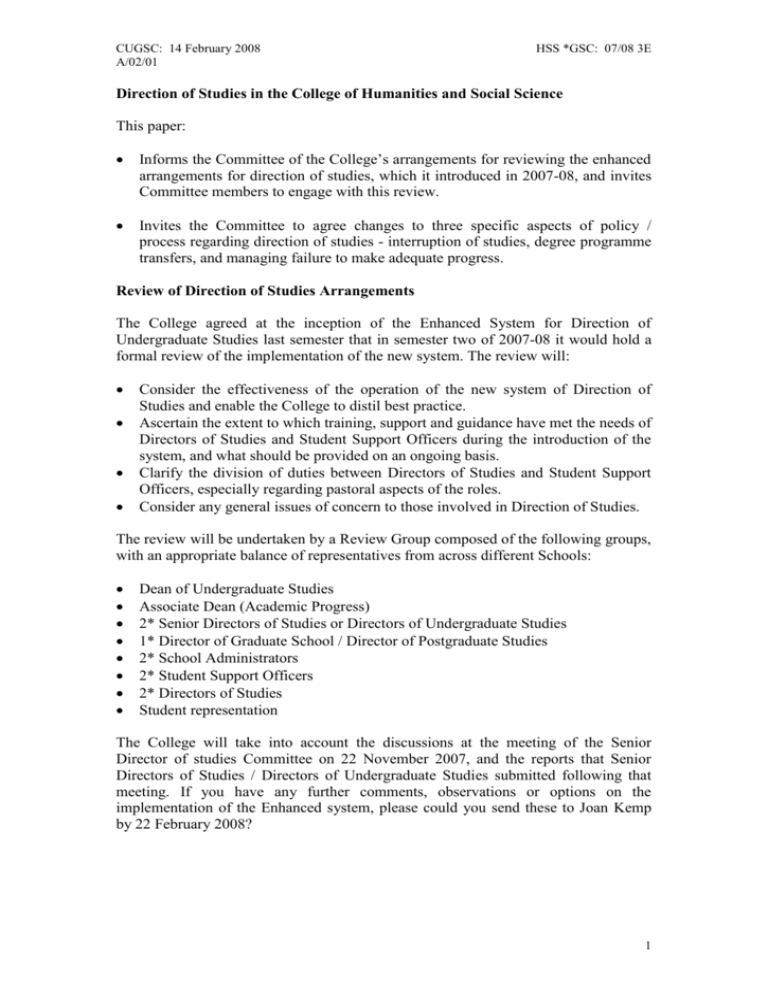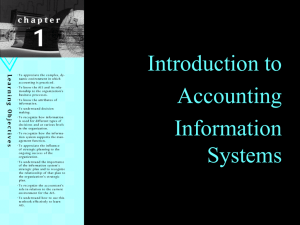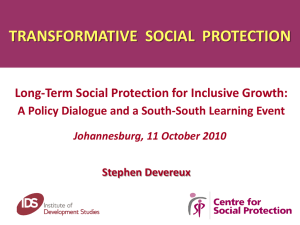3E: Director of Studies Guidance
advertisement

CUGSC: 14 February 2008 A/02/01 HSS *GSC: 07/08 3E Direction of Studies in the College of Humanities and Social Science This paper: Informs the Committee of the College’s arrangements for reviewing the enhanced arrangements for direction of studies, which it introduced in 2007-08, and invites Committee members to engage with this review. Invites the Committee to agree changes to three specific aspects of policy / process regarding direction of studies - interruption of studies, degree programme transfers, and managing failure to make adequate progress. Review of Direction of Studies Arrangements The College agreed at the inception of the Enhanced System for Direction of Undergraduate Studies last semester that in semester two of 2007-08 it would hold a formal review of the implementation of the new system. The review will: Consider the effectiveness of the operation of the new system of Direction of Studies and enable the College to distil best practice. Ascertain the extent to which training, support and guidance have met the needs of Directors of Studies and Student Support Officers during the introduction of the system, and what should be provided on an ongoing basis. Clarify the division of duties between Directors of Studies and Student Support Officers, especially regarding pastoral aspects of the roles. Consider any general issues of concern to those involved in Direction of Studies. The review will be undertaken by a Review Group composed of the following groups, with an appropriate balance of representatives from across different Schools: Dean of Undergraduate Studies Associate Dean (Academic Progress) 2* Senior Directors of Studies or Directors of Undergraduate Studies 1* Director of Graduate School / Director of Postgraduate Studies 2* School Administrators 2* Student Support Officers 2* Directors of Studies Student representation The College will take into account the discussions at the meeting of the Senior Director of studies Committee on 22 November 2007, and the reports that Senior Directors of Studies / Directors of Undergraduate Studies submitted following that meeting. If you have any further comments, observations or options on the implementation of the Enhanced system, please could you send these to Joan Kemp by 22 February 2008? 1 CUGSC: 14 February 2008 A/02/01 HSS *GSC: 07/08 3E Authorised Interruption of Studies (AIS) The College Associate Dean (Academic Progression) is responsible for considering requests for AIS. The College Guidance on Direction of Studies does not provide guidance regarding the criteria that the College will apply when considering requests for AIS, and as a result the College receives a lot of requests that do not make a strong case and require considerable follow-up work. Whilst all requests for AIS will have to be made on a case by case basis due to the personal circumstances involved, the College proposes the following framework: The presumption is that once a student enters a degree programme they should study each year until they have completed the degree. Cases where a student has no choice but to interrupt studies for medical or other personal reasons should be considered favourably. Where at all possible, documentary evidence should be provided, and the request should be signed by the relevant Director of Studies. Cases where a student requests AIS because of academic difficulties or in order to pursue other interests would generally be considered less favourably and may not be granted. A possible exception would be elite participation and performance in sport - SUGSC recently discussed a paper that suggested that the University should be willing to consider concessions in these circumstances. Students should normally request AIS at the point that they wish to interrupt their studies, or in advance of this. The College would only consider retrospective requests for AIS in exceptional circumstances where students can demonstrate good reason for not having requesting AIS at the appropriate time. Requests for retrospective AIS could only be granted if the student had not participated in their studies during the period in question. Where the College grants AIS for part of an academic session, it would normally expect a student to return the following year to complete the remainder of the year rather than to retake the year in full. Only in exceptional cases, for example where the structure of the curriculum would prevent a student from returning for part of the year, would the College consider a request for a student to retake the year of study in full. Where a student requests AIS in order to restart the year on a different degree programme, and they have no compelling personal/medical circumstances that would require them to interrupt their studies, they would normally be advised to apply for a transfer through the established College procedure (for consideration in March/April) and to continue on their current degree programme until a decision is made on the transfer request. The Committee is invited to confirm whether it is content with this guidance. 2 CUGSC: 14 February 2008 A/02/01 HSS *GSC: 07/08 3E Degree Programme Transfers At its meeting on 26 November 2007 the College Planning and Resources Committee considered the arrangements for degree programme transfers in the light of the continued need to actively control the pressure on student numbers caused by students transferring from other Colleges or requesting transfers that involve an additional year of studies. P&R agreed that the current arrangements for managing degree transfers should continue. In addition, at its 22 November 2007 meeting CUGSC noted that the College had reviewed Schools’ use of devolved powers to decide on certain categories of transfers (those that did not involve transfers from other College or an extension to the period of studies) and concluded that in general Schools were operating these processes in a smooth, consistent and effective manner. There are therefore no grounds for fundamentally changing the approach to degree programme transfers for 2008-09. There is however one aspect of degree programme transfers that could usefully be clarified: whether Schools should be allowed to approve transfers in-year (for those categories of transfers that they have authority to approve), or only at the beginning / end of an academic year. Under current Direction of Studies Guidance: New First Year Students wishing to transfer during Freshers’ Week should be directed to the CHSS Undergraduate Admissions Office or the Freshers’ Information Centre. First year students will not normally be allowed to transfer degree programme after the end of week two in Semester 1. The Guidance does not stipulate whether Schools can agree transfers in-year for students in year two and above. No student will be admitted to a course that is part of their degree programme more than two weeks after the start of the semester in which the course is taught without the permission of the Director of Undergraduate Studies. Requests for transfers requiring College Office approval must be submitted by 20 March 2008. The College proposes the following position should apply in 2008-09: New First Year Students wishing to transfer during Freshers’ Week should continue to be directed to the CHSS Undergraduate Admissions Office or the Freshers’ Information Centre. Where Schools have the power to consider transfers (transfers that do not extend the length of the period of study or involve a transfer from other College), they are free to do so at any point in the year. They should not set a specific deadline for transfer requests, except where they are operating a gathered field approach to transfers (for which the express permission of College is required). No student will be admitted to a course that is part of their degree programme more than two weeks after the start of the semester in which the course is taught without the permission of the Director of Undergraduate Studies. Requests for transfers requiring College Office approval (transfers that extend the period of study and transfers from another College) must be submitted by March 2009 (exact date to be decided). 3 CUGSC: 14 February 2008 A/02/01 HSS *GSC: 07/08 3E The Committee is invited to confirm whether it is content with these proposed arrangements. Failure to make adequate progress Under the arrangements that the College introduced in 2006-07 and continued with in 2007-08, only the Dean of Undergraduate Studies and Associate Dean (Academic Progress) could approve requests from students to restart a year of studies. Following re-sit examinations, the College Office invited students to formal interview in Freshers Week if they had not passed sufficient credits to be able to progress. Law, Education and Divinity operated their own procedures in respect of failure to make adequate progress, and fed their recommendations to the Dean of Undergraduate Studies who considered and authorised or amended their proposals. Where the College accepted that a student should be allowed to repeat a year of studies, it generally sought to find a suitable way for the student to do so on a part-time rather than full-time basis. The College introduced these arrangements in order to be able to control the number of students retaking years of study, in order to remain within the limits of full-time students eligible for funding (‘the consolidation limit’) set by the Funding Council, as well as to manage overall student numbers more generally. The College considers it necessary to maintain the capacity to actively manage student numbers in this way. The College proposes devolving aspects of responsibility for deciding on cases of failure to make adequate progress with effect from Freshers Week 2008 on the following basis: Each School would be responsible for identifying students who had failed to make adequate progress, and inviting them for interview. Registry would be able to assist with this by providing standard reports. Each School would devise a process for holding formal interviews with students in this situation, allowing students the opportunity to present appropriate evidence and supporting statements via their Director of Studies. Schools would have authority to grant students permission to retake a year of study on a part-time basis. Where Schools wished to recommend that a student be allowed to retake on a full-time basis, they would seek the College’s permission for this. The College would then consider the case before making a decision on this request. Where necessary, the College would hold an interview with the student. Where a School’s interview arrangements do not have sufficient externality from the student in question (for example, if the interviews are conducted by a member of staff that is the student’s Director of Studies or course coordinator) the School would refer the case to College. Entry to Honours would continue to be a School matter. Formal appeals over decisions regarding entry to Honours are handled under the University’s standard appeals procedures. This devolved approach would have the advantage of consistency, by removing the anomaly that currently exists whereby three Schools (Law, Divinity, Education) conduct progression interviews for students on their programmes, whereas all other students are interviewed by the College. It would also lead to more rapid decisionmaking. 4 CUGSC: 14 February 2008 A/02/01 HSS *GSC: 07/08 3E The Committee is invited to agree these proposed progression arrangements in principle – the College would then put together more detailed guidance to ensure consistent practice across Schools. Professor Jake Ansell / Tom Ward 7 February 2008 5





